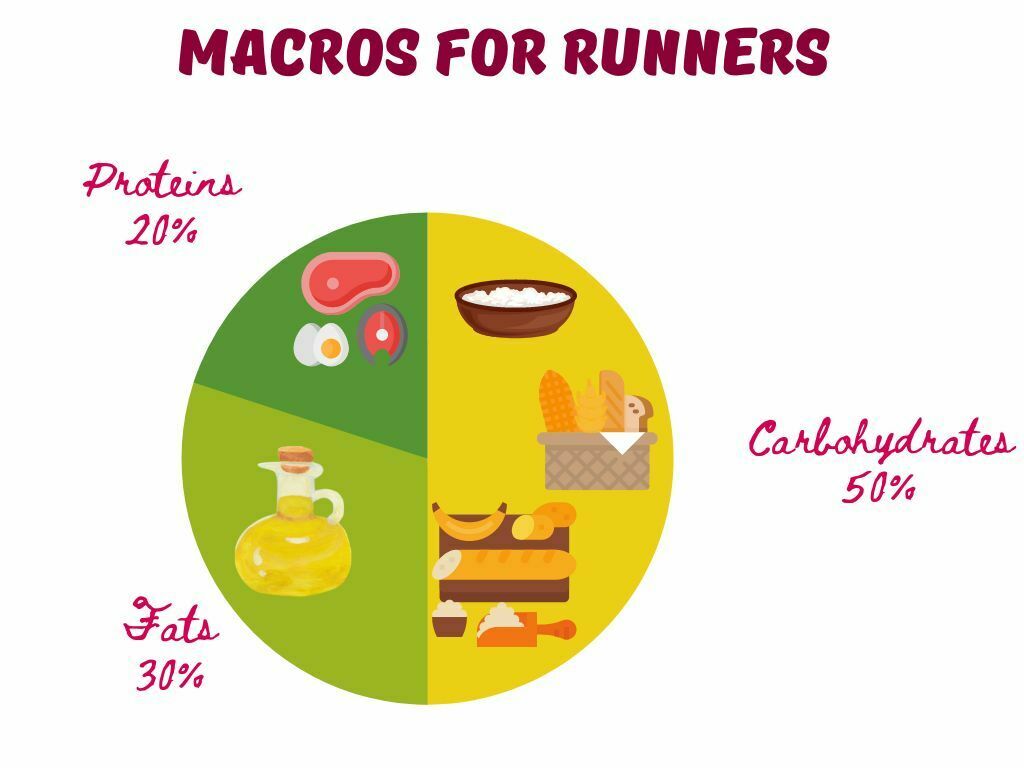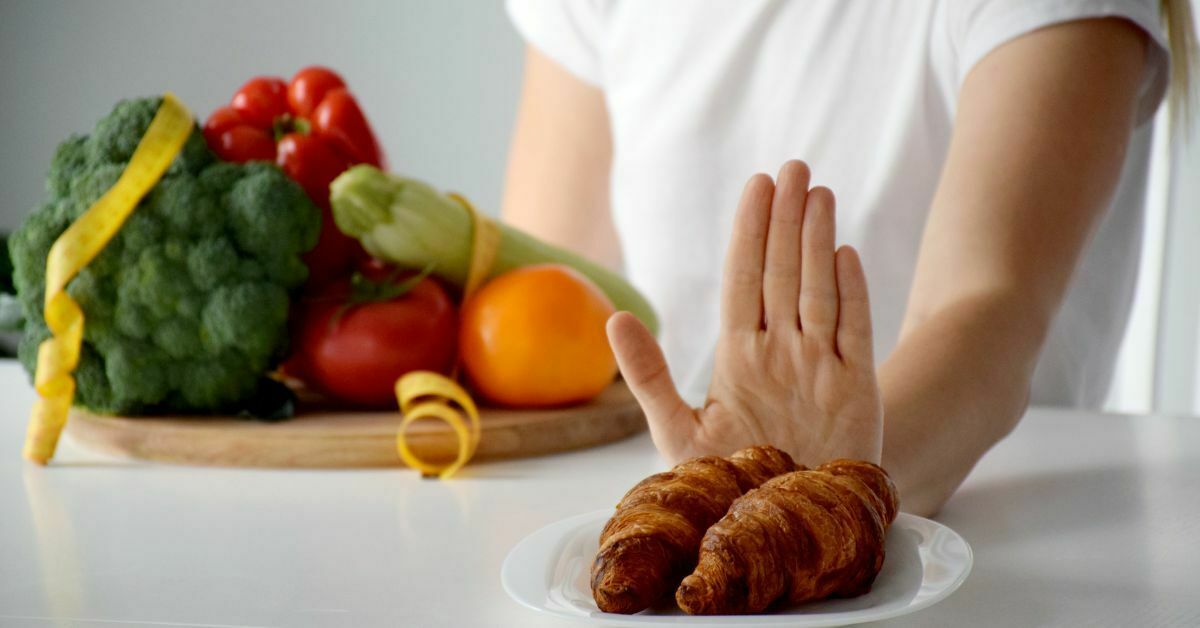Calculating the amount of macros you need if you are running for long distances like joining marathon, or even in short distance is essential to achieve nutritional balance and stay active.
As we know, there are lots of health advantages to running. Spreading over the range from working on cardiovascular wellness, and toning up the body muscles, running also helps in lessening stress and anxiety.
Moreover, various studies have also revealed that you can increase the density of your bones if you get involved in running. Along with that, you can also promote the production of bone-developing hormones in your body if you run regularly. More grounded bones are stronger and less inclined to break.
Similarly, running also helps you burn calories. As a matter of fact, running is one of the most productive kinds of activity with regard to the number of calories consumed each moment, so if you want to shed extra kilos and get in shape, you must definitely incorporate it into your exercise routine.
So, if you want to get a membership to a gym to start off some exercise, make sure you have comfortable and lightweight athletic wear so that you can make your workout sessions easy-going.
Calculating macros for runners
Macros for runners should be in specific proportions like:
- Carbohydrates intake: 40–60% of total caloric intake.
- Protein should account for 20%–25% of total calories.
- Healthy fat intake: 20-30% of daily calories.
However, if you need more specified results, you can use the calculator below to know the amount of calories you’ll need per day and how much proteins, carbs, and fats you have to include on your meals.
Why you should follow a runner diet plan?
Being an athlete, you might know that lots and lots of energy is being utilized during running, so most of the time, runners get confused about what they have to eat and at which time. Keep in mind that you need to have a good portion of carbohydrates in order to fuel your body.
- A runner’s diet impacts how the body is charged for exercise and what supplement assets are accessible to recuperate after the activity.
- Both of these things influence energy, execution, strength, injury hazard, and your well-being status.
- Every diet works differently for every runner because all of us are different from each other anatomically, but being an athlete you need to have a good portion of carbs, fats, and proteins on your plate (before and after your workout sessions).
- Your body’s requirement for calories also depends upon your height, weight, and energy usage.
- Runners must know that they should increase their calories to recuperate and perform appropriately when their mileage increases.
Check out our latest posts:
- Is Going to Bed Hungry On Intermittent Fasting Normal?
- Craving Sweets on Carnivore Diet: Tips to Curb Your Sweet Tooth
- 23 Top Carnivore Diet Snacks: Easy, and Satiating Options
- Pollotarian Diet: A Balanced Approach to Healthy Eating
- Intermittent Fasting for Teens: A Guide to Healthy Practices
Why are carbs good for runners?
Consumption of carbs can likewise renew your energy whenever consumed before, during, or after your exercise sessions.
- If you are eating carbohydrates before your exercise, it will give you a lift in glycogen (which is stored in your muscles), empowering them to work for a longer time period.
- During the exercise session, carbohydrates break down easily. This is the reason they are the most agreeable sort of energy in your body.
- Similarly, if you consume carbs during your workout session, it will furnish them with glucose in the blood, which will act as additional fuel and give them extra energy.
One of the studies of first-class runners revealed that most of the runners consumed almost fifty to seventy percent of their calorie requirements from carbohydrates.
So, the individuals who prepared at higher power and ran longer distances required more carbs.
How many carbs do runners need?
Most specialists reveal that the body’s requirement for carbs is in the range of 2.5 to 4.5 grams per pound of body weight.
Best carbs for runners
Here are some examples of good carbs to have before running to give you energy:
- Fruits.
- Potatoes.
- Brown rice.
- Oatmeal.
- Whole wheat bread.
- Whole wheat pasta.
- Milk.
- Beans.
- Cereals.
The importance of proteins for runners.
As we know, proteins are the building blocks of our body, and each cell in our body contains protein, and you need protein in your meals to assist your body with repairing the cells and making new ones.
So, being an athlete, you need to have a good portion of protein in your diet because, as an athlete, you have more lean muscles and, after your intense workout, you need your muscles to recover. That is the reason you need a good portion of protein in your diet.
Along with that, being an athlete, you must also focus on wearing comfortable gym outfits so that you can prevent yourself from getting distracted.
Check out more related posts:
- E2M diet rules.
- Does Eating Junk Food After a Workout Ruin It?
- Can I Eat Rice After Workout to Lose Weight?
- Gain Weight Like A Sumo; Sumo Habits Help to gain weight

The amount of protein required for a runner?
It has been revealed that a runner consumes almost 0.5 to 0.9 grams of protein for every pound of body weight every day.
Similarly, if you are a runner and your weight is around 150 pounds, then you need to consume almost 75 to 135 grams of protein daily.
Protein sources for runners
You can get proteins from:
- Walnuts.
- Peanut butter.
- Eggs.
- Milk.
- Beans.
- Meat.
- Fish.
- Poultry.
The importance of fat for runners
Fats also play a vital role in our bodies, which includes:
- the protection of our organs.
- Supporting the development of cells.
- Keeping our bodies warm.
- Helping in the development of hormones.
- So, for endurance athletes, it’s important to have a sufficient amount of fat in their diet.
- Also, when the glycogen stores are utilized, your body moves towards fat and utilizes them for long-haul fuel.
Eating the perfect amount and kind of fat is significant.
The amount of fat required for a runner?
It has been estimated that runners should consume 20-35% (0.5-1.5 g/kg/day) of their day-to-day caloric admission as fat. When you are running at low intensity, fats are your predominant fuel, so to protect your organs and lubricate your joints, it is important to consume dietary fats.
Best fatty foods for runners
You can consume fats from foods such as:
- Olives.
- Canola.
- Sunflower.
- Nuts.
- Soy.
- Fish.
- Corn.
Moreover, you must keep yourself hydrated. Male athletes must consume 5.7 liters of water, and female athletes should drink at least 4.0 liters of water.

